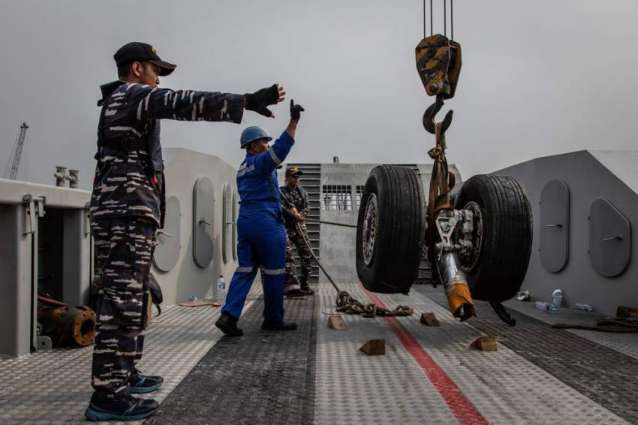Boeing has addressed the design flaws that led to the Lion Air Flight 610 crash in October last year and is rigorously testing the updates, a statement released on Friday in response to Indonesia's final report that was published a day prior
MOSCOW (Pakistan Point News / Sputnik - 25th October, 2019) Boeing has addressed the design flaws that led to the Lion Air Flight 610 crash in October last year and is rigorously testing the updates, a statement released on Friday in response to Indonesia's final report that was published a day prior.
"We are addressing the Indonesia's National Transportation Safety Committee's (KNKT) safety recommendations, and taking actions to enhance the safety of the 737 MAX to prevent the flight control conditions that occurred in this accident from ever happening again," the statement, published on the company's website, said.
Indonesia's KNKT report apportioned much of the blame on the US manufacturing giant for faulty correspondence between stabilizing sensors, known as Angle of Attack sensors, and on-board software. However, the report also outlined shortcomings by the flight crew, plane repair services and a Florida-based spare parts provider that led to the crash that killed 189 people. Nevertheless, the committee maintained that it was Boeing's responsibility to have foreseen such a sequence of events and taken precautions to avoid it.
Boeing commended the KNKT and expressed condolences to the families of the victims before detailing the changes that it had implemented to root out the problem.
"Boeing has redesigned the way Angle of Attack (AoA) sensors work with a feature of the flight control software known as Maneuvering Characteristics Augmentation System (MCAS). Going forward, MCAS will compare information from both AoA sensors before activating, adding a new layer of protection," the statement read.
The 737 MAX was advertised as Boeing's most innovative, fuel-efficient aircraft to date. But after a similar crash occurred in Ethiopia in March 2019, airlines and governments around the world decided to ground the model. All 157 people aboard Ethiopian Airlines Flight 302 died.
The report confirmed expert analyses that the MCAS software was to blame. Due to the slick, fuel-efficient design, a natural tilt upwards was inevitable during takeoff. For this reason, Boeing installed the special system to push the plane's nose downward during specific situations. The report described the fatal sequence of mishaps that can force this system to initiate at the wrong time and plunge the plane downward to its destruction.




